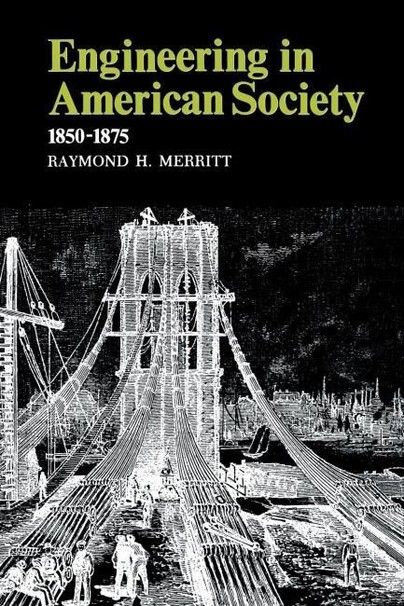Engineering in American Society (Paperback)
1850-1875
Imprint: University Press of Kentucky
Pages: 212
ISBN: 9780813153759
Published: 15th July 2014
Script Academic & Professional
Pages: 212
ISBN: 9780813153759
Published: 15th July 2014
Script Academic & Professional
This book will be reprinted and your order will be released in due course.
You'll be £18.00 closer to your next £10.00 credit when you purchase Engineering in American Society. What's this?
+£4.99 UK Delivery or free UK delivery if order is over £40
(click here for international delivery rates)
Order within the next 42 minutes to get your order processed the next working day!
Need a currency converter? Check XE.com for live rates
(click here for international delivery rates)
Order within the next 42 minutes to get your order processed the next working day!
Need a currency converter? Check XE.com for live rates
Technology, which has significantly changed Western man's way of life over the past century, exerted a powerful influence on American society during the third quarter of the nineteenth century. In this study Raymond H. Merritt focuses on the engineering profession, in order to describe not only the vital role that engineers played in producing a technological society but also to note the changes they helped to bring about in American education, industry, professional status, world perspectives, urban existence, and cultural values.
During the development period of 1850-1875, engineers erected bridges, blasted tunnels, designed machines, improved rivers and harbors, developed utilities necessary for urban life, and helped to bind the continent together through new systems of transportation and communication. As a concomitant to this technological development, states Merritt, they introduced a new set of cultural values that were at once urban and cosmopolitan. These cultural values tended to reflect the engineers' experience of mobility -- so much a part of their lives -- and their commitment to efficiency, standardization, improved living conditions, and a less burdensome life.
Merritt concludes from his study that the rapid growth of the engineering profession was aided greatly by the introduction of new teaching methods which emphasized and encouraged the solution of immediate problems. Schools devoted exclusively to the education and training of engineers flourished -- schools such as Rensselaer Polytechnic Institute and Stevens Institute of Technology. Moreover, business corporations and governments sought the services of the engineers to meet the new technological demands of the day. In response, they devised methods and materials that went beyond traditional techniques. Their specialized experiences in planning, constructing, and supervising the early operation of these facilities brought them into positions of authority in the new business concerns, since they often were the only qualified men available for the executive positions of authority for the executive positions of America's earliest large corporations. These positions of authority further extended their influence in American society. Engineers took a positive view of administration, developed systems of cost accounting, worked out job descriptions, defined levels of responsibility, and played a major role in industrial consolidation.
Despite their close association with secular materialism, Merritt notes that many engineers expressed the hope that human peace and happiness would result from technical innovation and that they themselves could devote their technological knowledge, executive experience, and newly acquired status to solve some of the critical problems of communal life. Having begun merely as had become the planners and, in many cases, municipal enterprises which they hoped would turn a land of farms and cities into a "social eden."
Other titles in University Press of Kentucky...















